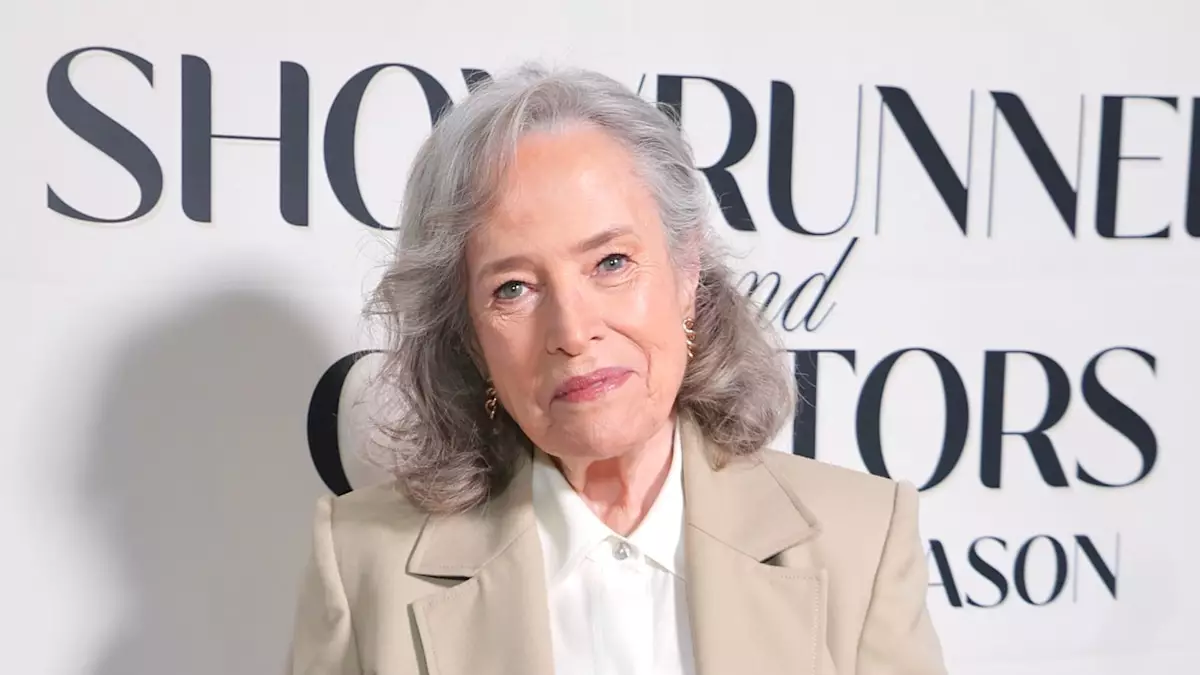Kathy Bates, a name synonymous with versatility and talent in Hollywood, has had her fair share of ups and downs. The actress catapulted to stardom in 1990 with her iconic portrayal of Annie Wilkes in the psychological thriller *Misery*, a role that not only secured her an Academy Award but also solidified her presence in the movie industry. Yet, as she reflects on what she calls her “prime,” it becomes evident that the heights of fame do not shield one from insecurity and uncertainty. Bates openly acknowledges a difficult period that followed her Oscar win, stating, “There was quite a while where I didn’t know what was going to happen next.” This statement encapsulates the fragility of success; while the accolades may shine, they do not necessarily illuminate the path ahead.
Confronting Industry Standards
One particularly striking aspect of Bates’ career is her candidness about the industry’s often narrow standards of beauty and acceptability. When Garry Marshall chose not to cast her in the film adaptation of *Frankie and Johnny*, despite her having originated the role in the off-Broadway production, it bespoke a chilling reality. Marshall’s stated belief that audiences could not see her as a romantic figure reveals the deeply ingrained biases still prevalent in Hollywood. “He couldn’t make the leap that people would see me on [the] screen kissing someone,” she disclosed, showcasing not only her experience of rejection but the industry’s reluctance to embrace diverse representations of love and attraction.
It’s hard not to be struck by the implications of such an experience, especially when Bates recalls her father telling her acting teacher that she was “not conventionally attractive.” These moments highlight the personal battles that many actresses face and the societal pressures that dictate their worth. In an industry fixated on youth and conventional beauty, how many gifted performers suffer silently, sidelined because they don’t fit a specific mold?
Resilience Amid Emotional Turmoil
Bates’ journey also illustrates the emotional toll that the industry can levy. In a poignant recollection, she shared an incident where a British journalist questioned Aidan Quinn’s believability as her on-screen husband, which left her feeling crushed. This experience led her to lock herself away, shedding tears reminiscent of childhood heartbreak. These reactions are all too familiar for anyone who has faced public scrutiny or doubt, underscoring a universal truth: vulnerability often accompanies strength. Despite the adversity, Bates has an unusual ability to turn painful moments into sources of humor, as evidenced by her whimsical recounting of finding a magazine about *Frankie and Johnny* right after that painful encounter. Her indomitable spirit shines through these tales, revealing a woman unwilling to let discouragement define her.
A Transformative Journey to Health
In recent years, Bates has experienced profound changes in her life, notably shedding over 100 pounds. This transformation hasn’t only had physical ramifications; it has revitalized her career and revitalized her spirit. By sharing that her weight loss journey has made “working a lot easier,” she emphasizes the importance of health—not just as a superficial goal, but as a vital source of empowerment. Bates admits regretting the toll her weight had taken on her performance in the past, recognizing that priorities can become distorted in the relentless chase for artistic excellence.
“I can move, I can breathe, I can have fun,” she joyfully exclaims, offering a glimpse into a new chapter of her life where physical limitations no longer hinder her creative expression. This evolution mirrors a larger narrative prevalent in society, challenging the stigmas surrounding body image while illustrating the personal triumphs that come with self-acceptance.
More Than Just an Actress
Ultimately, Kathy Bates is more than an award-winning actress; she embodies resilience, authenticity, and a spirited refusal to conform. Her journey through the highs and lows of Hollywood reflects not only the challenges inherent in the industry but also a deeper exploration of self-worth, identity, and social acceptance. Through her stories, Bates sheds light on the importance of embracing one’s uniqueness and combating the unrealistic standards set by society— not merely for herself, but for a new generation of actors who follow in her footsteps. Her candid revelations invite us to question, challenge, and, ultimately, reshape the narrative of what it means to succeed in Hollywood and beyond.

